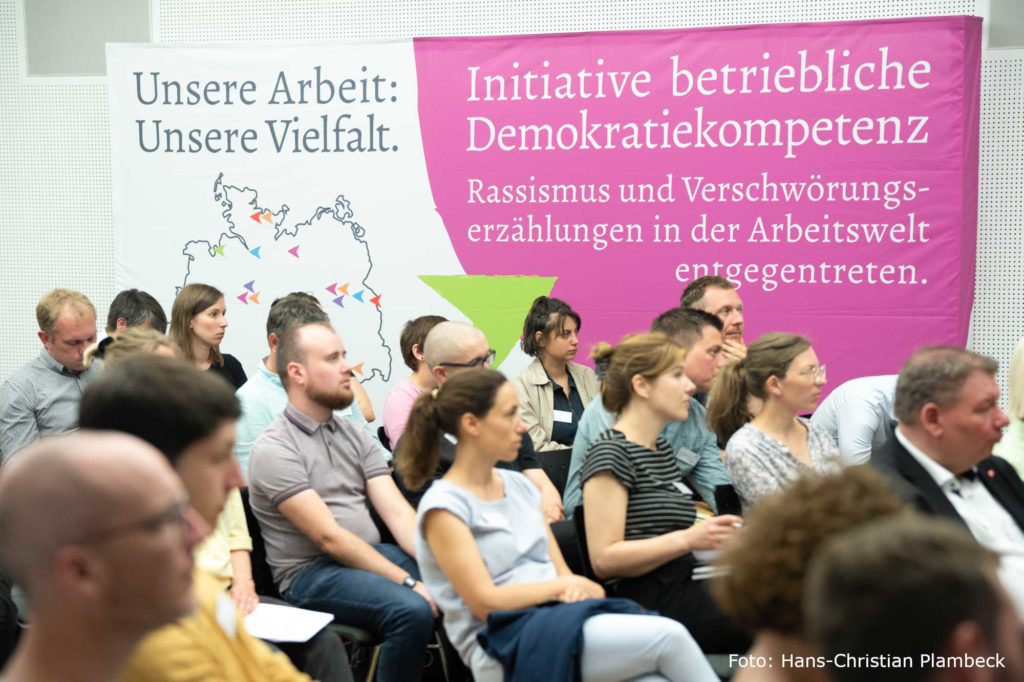
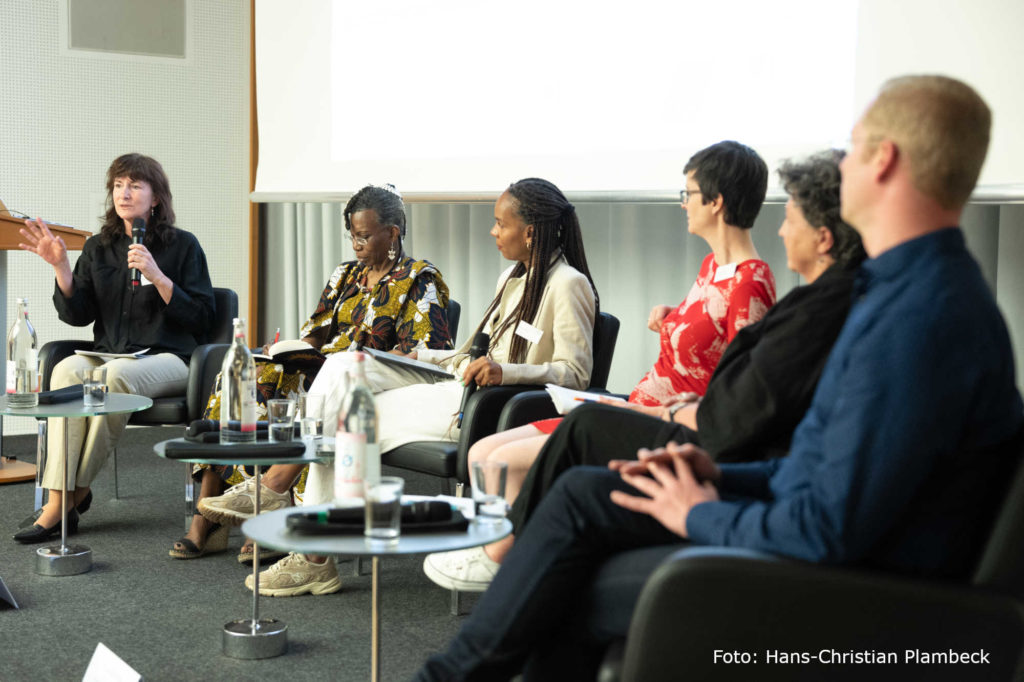
How can we stand up for democracy and against racist and right-wing extremist agitation and structures in the world of work? We discussed this topic at our symposium in Berlin on June 5. The event, which was held to mark the “halfway point” in the ongoing Initiative für betriebliche Demokratiekompetenz (Initiative for Workplace Democratic Competence program), focused on the strategies developed to date and the experiences of the training providers implementing the program: What approaches are being taken in the program to position companies and employees against racism and conspiracy narratives? How can competencies for democracy and co-determination in working life be strengthened? With over 100 participants, the day enabled an intensive exchange between colleagues inside and outside the initiative, representatives from ministries, trade unions, academia, companies, migrant organizations, other democracy promotion programs, political educators and other (company) education projects.
In her welcoming address, Dr. Gunilla Fincke (Head of Department, Bundesministerium für Arbeit und Soziales – BMAS [Federal Ministry of Labor and Social Affairs]) emphasized: Democracy(s) and a discrimination-free society are threatened by racists and advocates of authoritarian forms of government – but also by indifference and people who are not prepared to distance themselves from anti-democracy or racism and take a clear stance. Dr. Fincke therefore emphasized that everyone’s commitment and dedication to democracy is important, and that every step, every entrepreneur and every employee who takes action and stands up for integration and against exclusion promotes democratic cohesion. Dr. Fincke also referred to the fundamental importance of an open and democratic society in order to become attractive for the urgently needed immigration of skilled workers. This is another reason, he said, why programs such as the workplace democracy skills initiative , which is the focus today, are so important – the initiative is helping to create a welcoming country with a working world free of discrimination and prejudice.
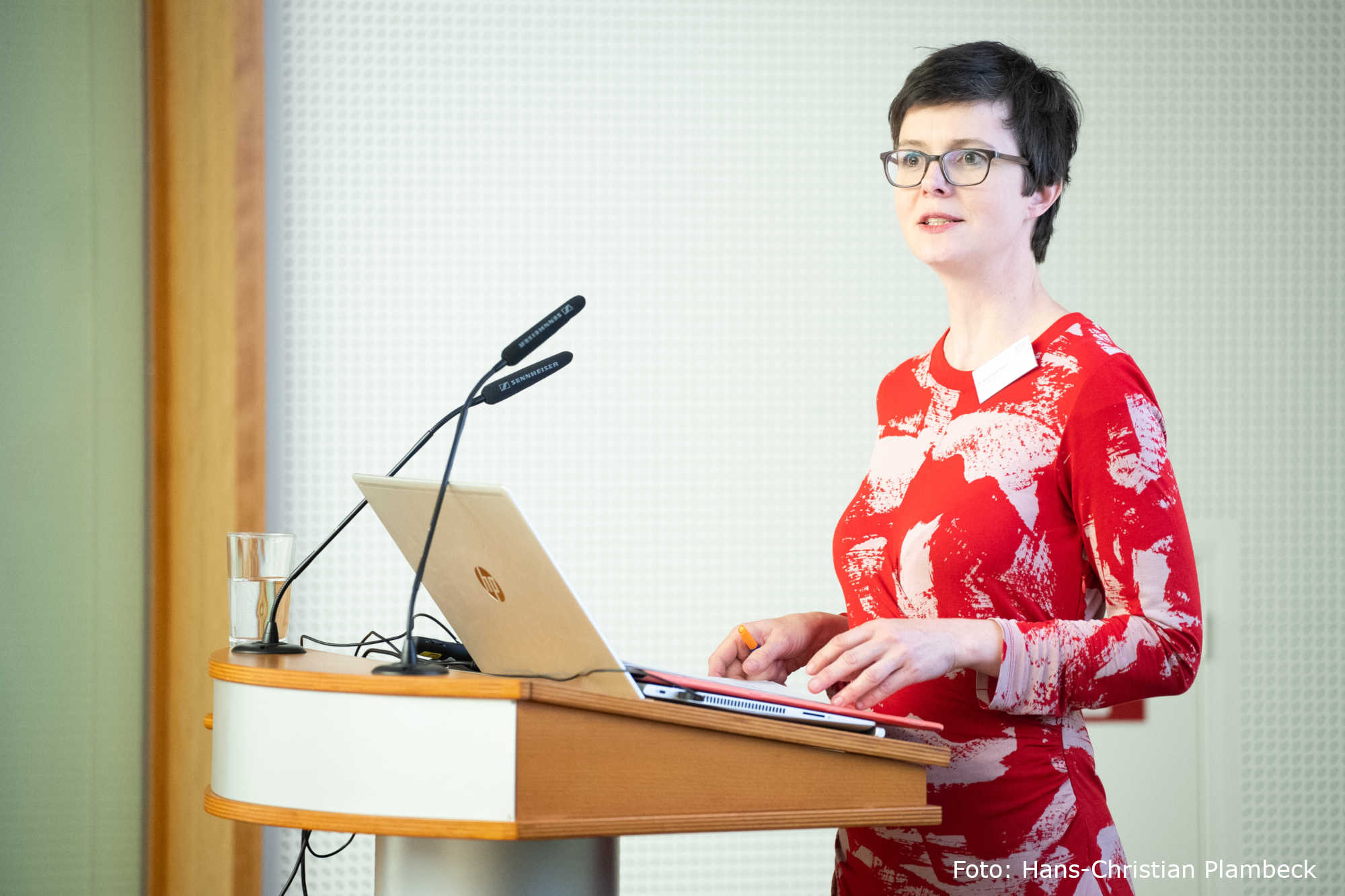
In her welcoming address, Anja Piel, a member of the Executive Board of the Deutscher Gewerkschaftsbund – DGB (German Trade Union Confederation), recalled right-wing acts of violence against whose background the establishment of the program stands: The racist attack in Hanau in 2020, the attack in Halle in 2019, the right-wing extremist murder series of the NSU or the arson attack in Solingen 30 years ago show the continuity of right-wing violence in Germany. Programs of political education are needed, Piel emphasized – not only in the sense of a “firefighting policy” after recurring racist and right-wing motivated acts, but constantly, preventively and with reliable funding. A program such as the Initiative for Workplace Democratic Competence, which focuses specifically on the workplace , offers a lot of potential: equal and collegial cooperation between diverse workforces in companies can be a key experience for mutual respect and make democracy tangible in everyday working life. At the same time, poor working conditions, isolation and heteronomy could also contribute to the formation of anti-democratic attitudes: Here it is important to use the democratic potential at the workplace.
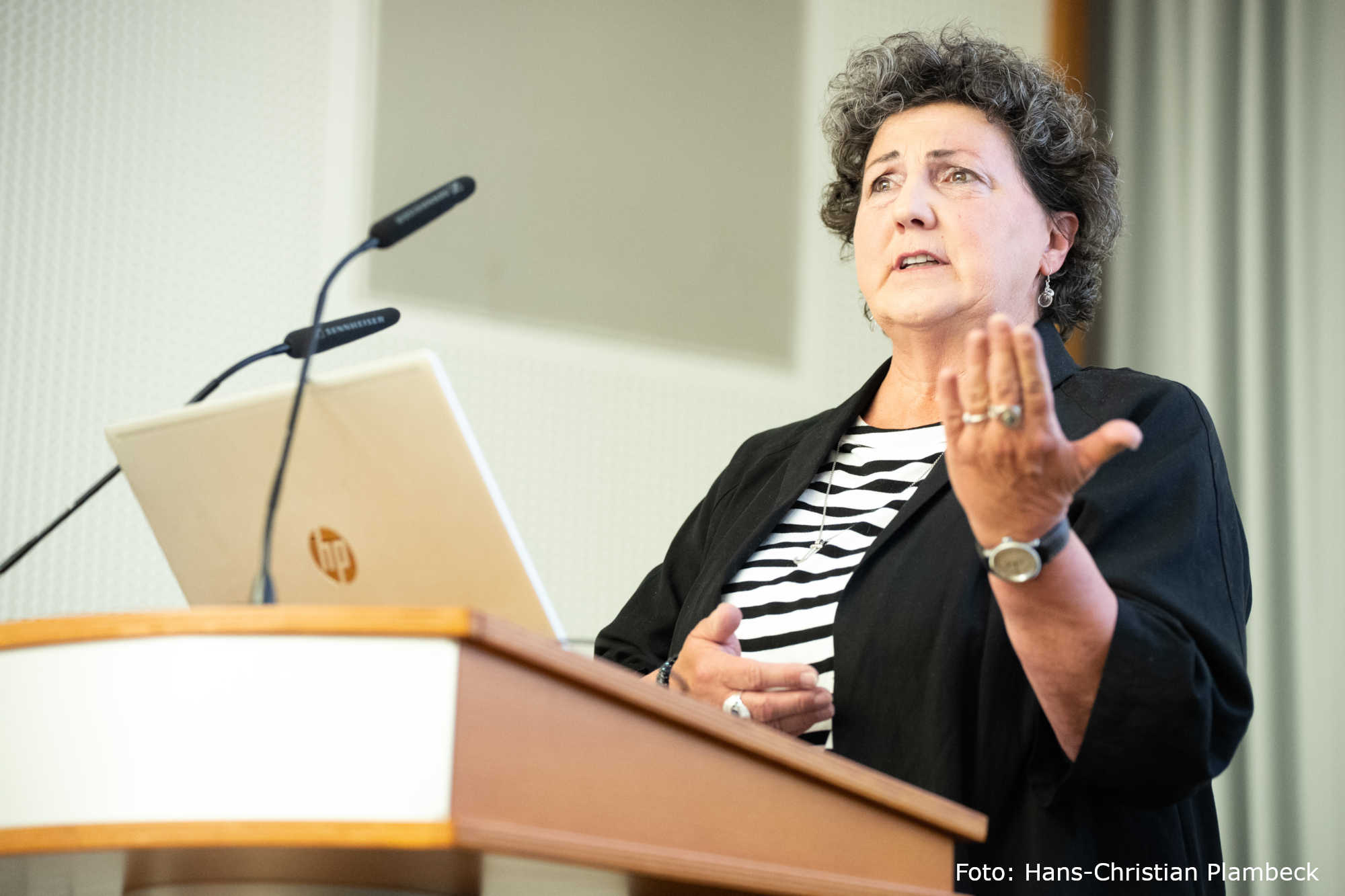
As a representative of the Bundeskonferenz der Migrantenorganisationen (Federal Conference of Migrant Organizations), Marianne Ballé-Moudoumbou emphasized in her keynote speech aspects to which special attention should be paid in the engagement against racism (in the world of work). Migrants and racialized people should not be involved in the debate and measures as passive “victims”, as is so often the case, but rather as active shapers of a just society. An intersectional approach is also immensely important in the fight against racism (more information on the Bundeskonferenz der Migrantenorganisationen here).
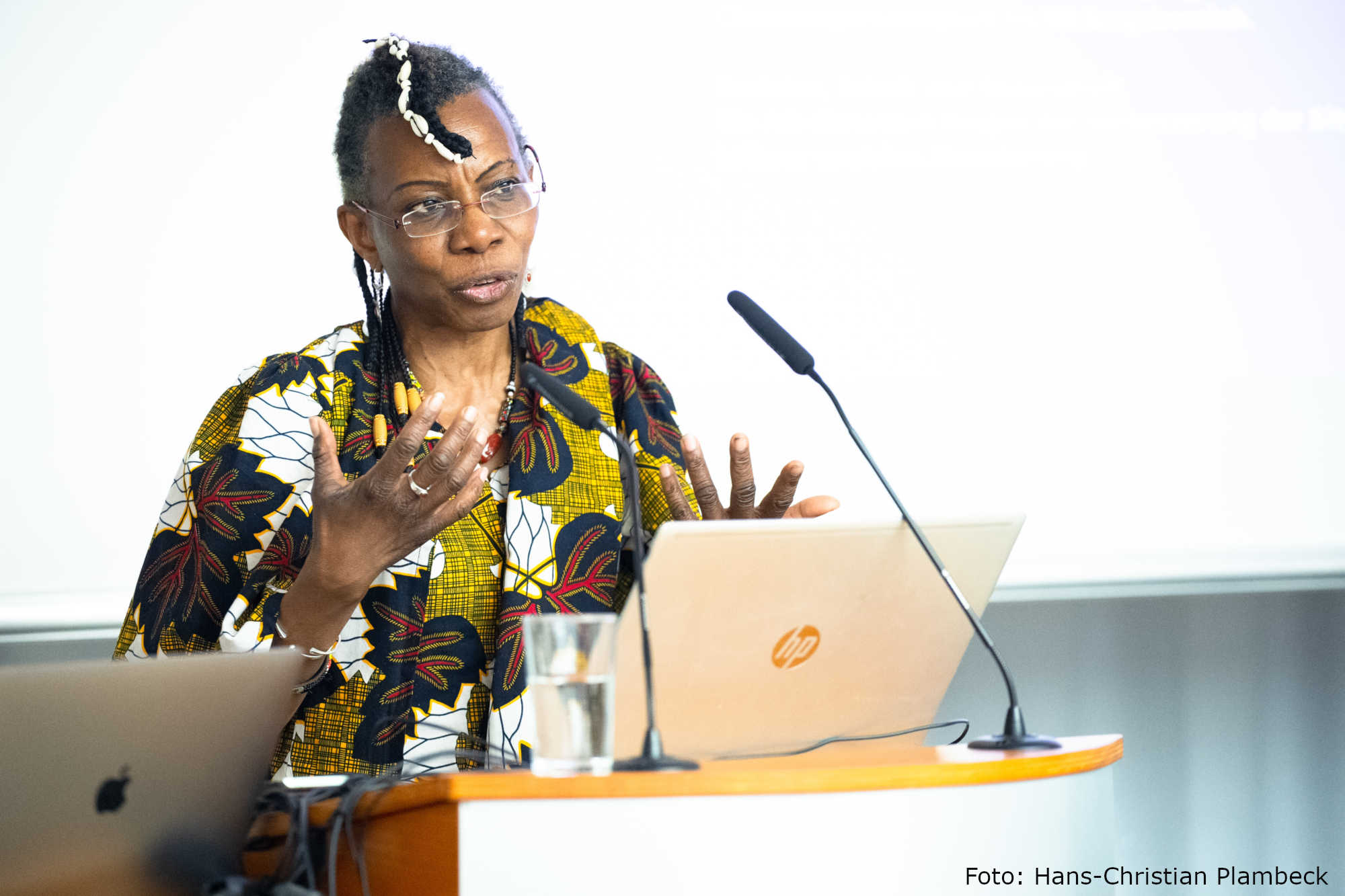
How democracy promotion and sensitization for racism and right-wing extremism in workforces looks like in concrete terms in the initiative for the promotion of democracy in companies: This insight was provided by three exemplary “project pitches” by representatives of projects implemented in the program: Anjalika Bhaskar-Sawahn, „Zusammen anders“- beramí; Lukas Hezel, „Betriebliche Demokratie stärken“ – DGB Bildungswerk Baden-Württemberg und Sara Holzner, „Zuhören. Verstehen. Handeln.“ – Bildungswerk der Thüringer Wirtschaft.
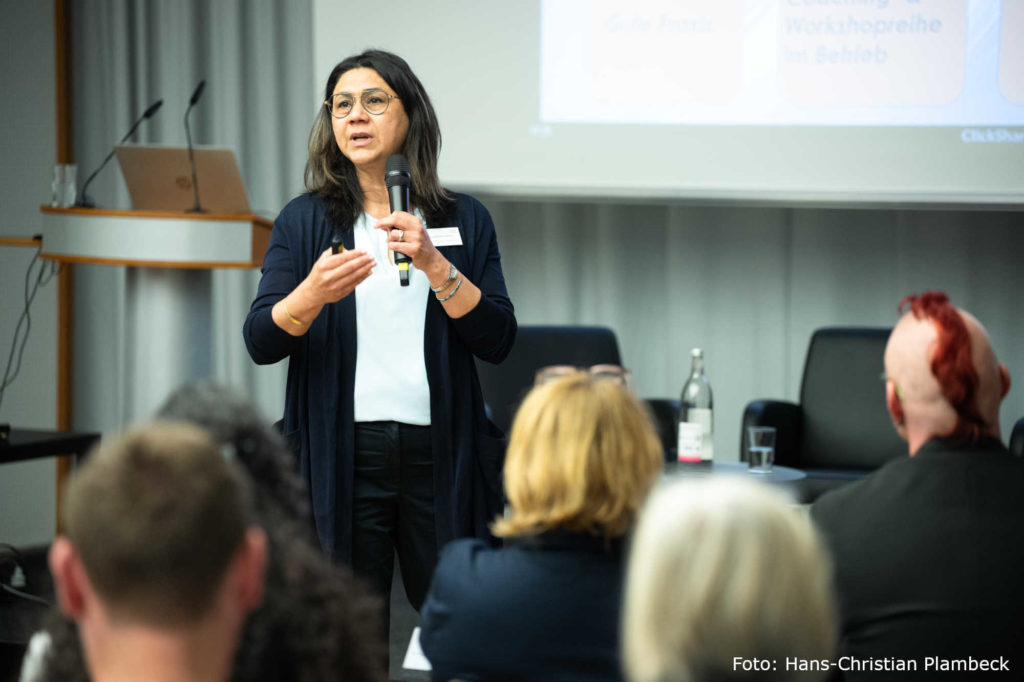
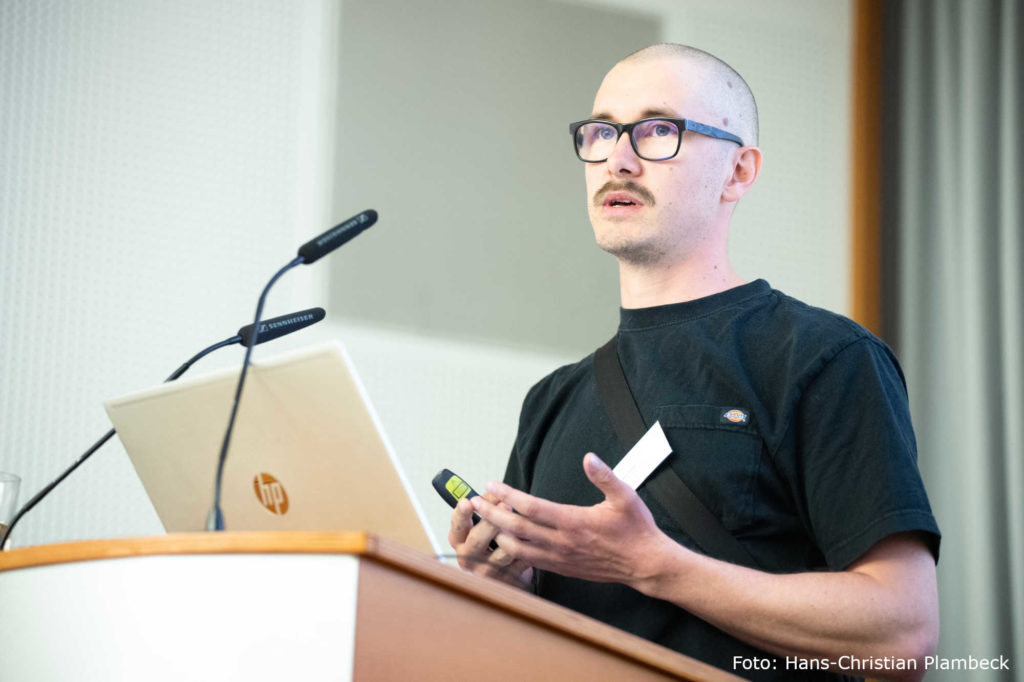
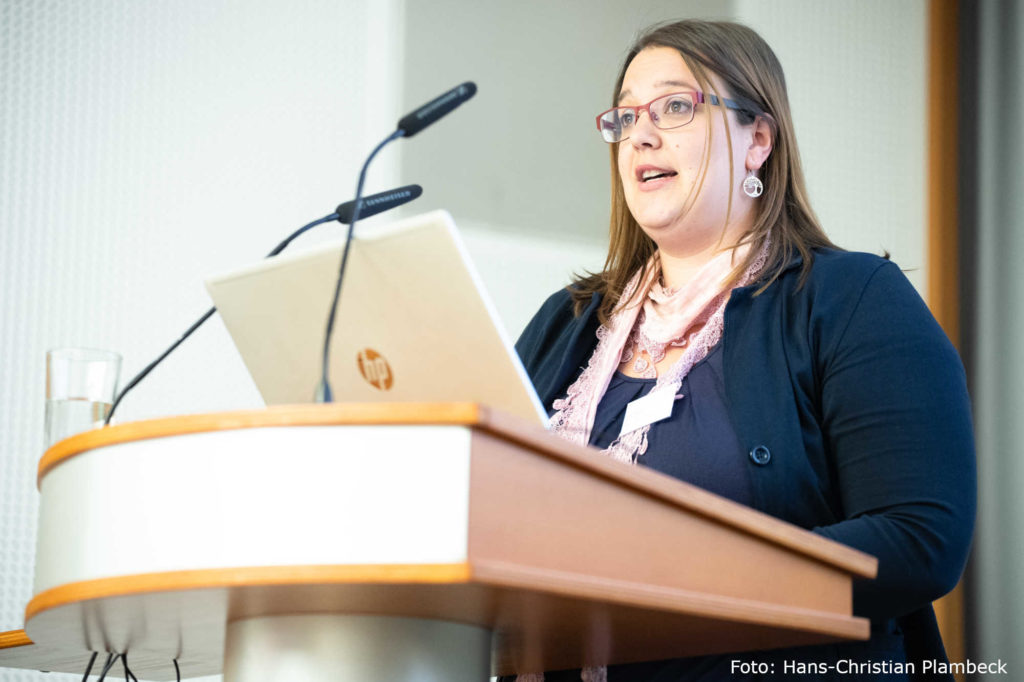
On the panel, the central program item in the morning, Dr. Gunilla Fincke (BMAS), Anja Piel (DGB), Dr. Johannes Kiess (Universität Leipzig), Marianne Ballé-Moudoumbou (Bundeskonferenz der Migrantenorganisationen) and Kathi Max (nursing facility of the Diakonie) discussed. Dr. Fincke classified from the perspective of the funding ministry: The Initiative für betriebliche Demokratiekompetenz addresses the world of work, since employees are currently experiencing major upheavals. These range from the phasing out of coal to digitization; in some cases, jobs are being shifted to home offices, while other occupational groups can still only work strictly on-site at the company. All these transformations offered potential for conflict between a wide variety of (employee) groups. There is a strong need to develop transferable models by the end of 2024, especially since funding is unlikely to be available for a direct extension of the program due to the difficult budgetary situation. Integration of successful approaches into other programs will be sought.
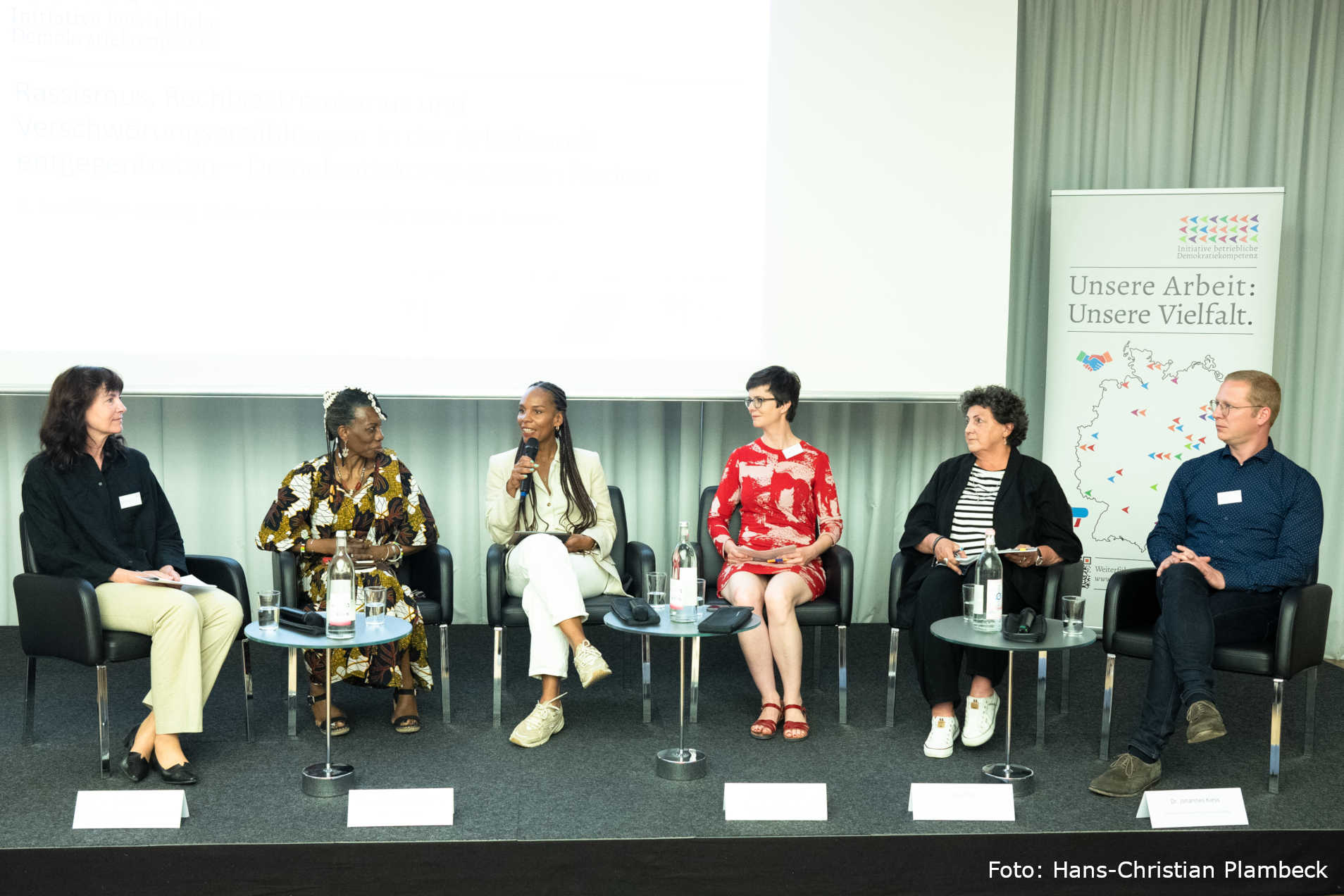
Dr. Kiess linked this to research findings from the Leipzig Authoritarianism Study, according to which the factors (lack of) “recognition” and “participation” played an important role in shaping (anti-)democratic attitudes. In order to counter racist attitudes, the implementation of workshops on diversity skills or raising awareness of racism alone is therefore not enough, but the working conditions must also be addressed. In this context, it is essential that employees can experience participation, co-determination and recognition in the company.
Kathi Max, manager of a senior care facility, shared experiences from the perspective of a company participating in the program’s educational offerings. With several newly hired employees from Ukraine, Vietnam, and Afghanistan, her workforce had changed rapidly in a shorter period of time. In order to avoid possible conflicts in the workforce, for example due to insecurities, reservations or language problems, her company took advantage of offers in the areas of communication, team cohesion and diversity skills. Marianne Ballé-Moudoumbou pointed out in this context that racism should not be discussed only in the context of migration – racism also exists independently of recent immigration and also affects people without their own migration history. Anja Piel concluded the panel by calling for reliable state funding for political education and programs to counter anti-democratic attitudes. She said that government funding for the Initiative for Operational Democratic Competence after 2024 was not currently guaranteed, but that the fight against racism should not be dependent on the current state of the budget.
After a lunch and networking break, Dr. Johannes Kiess presented the results of the Leipzig Authoritarianism Study 2022 and also highlighted study findings on “conflict perception patterns of dependent employees (more on the key findings here).
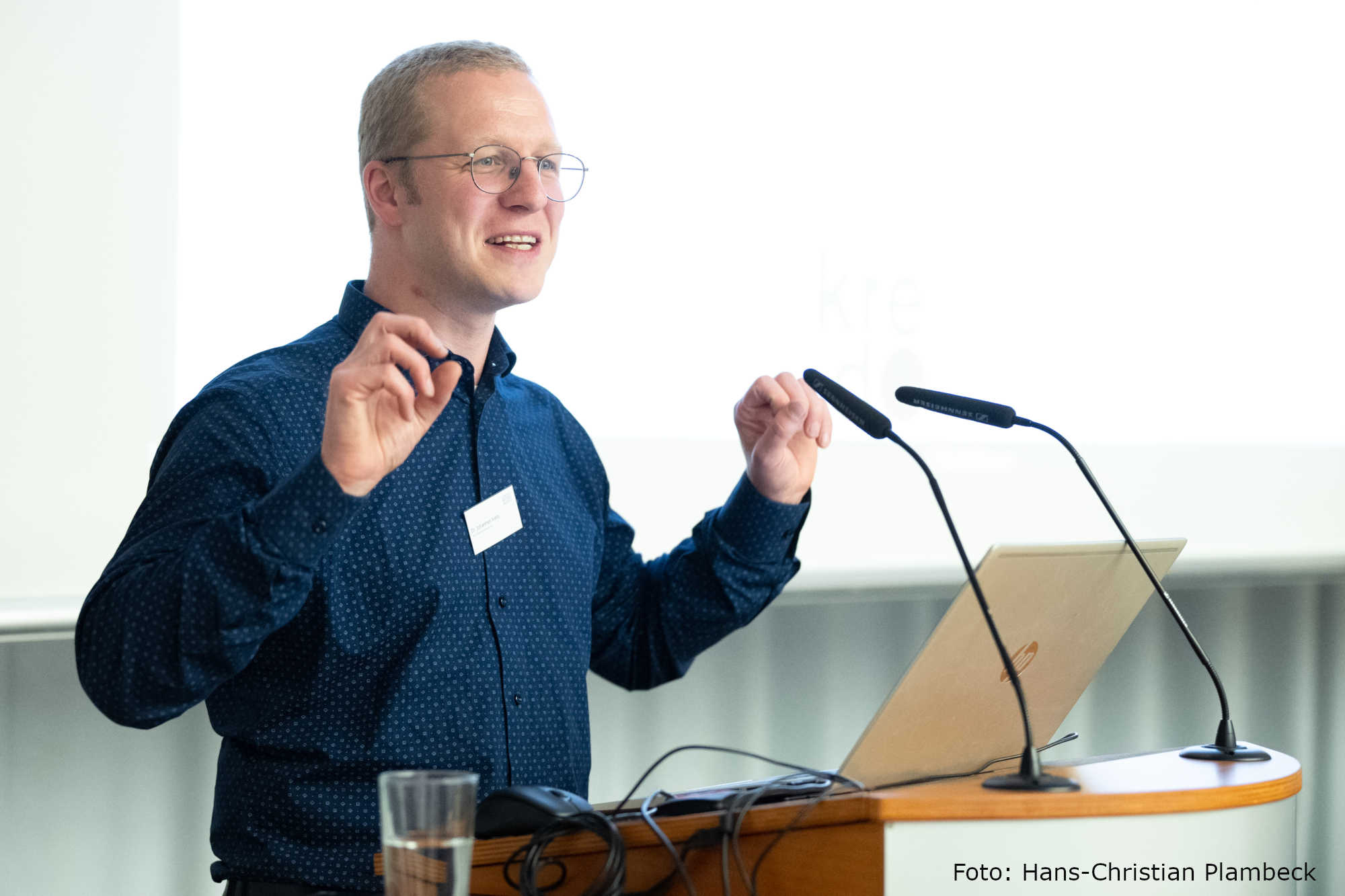
After an intensive first half of the symposium, the participants went into a working phase with four parallel workshops. Guided by educational advisors from the funded projects in the Initiative for Workplace Democratic Competence, the focus was on practical experiences of democracy promotion in companies and vocational schools:
- Workshop leaders Lucie Werndl and Leonore Grottker(Qualifizierungsförderwerk Chemie) discussed with participants “Industry-specific challenges posed by transformation processes” in combating anti-democratic attitudes in the world of work.
- Tanja Berg(Minor Projektkontor für Bildung und Forschung) and the workshop participants worked on region-specific characteristics in the promotion of democratic competencies and engagement against racism in the world of work
- Matthias Monecke(Verein zu Bewahrung der Demokratie) and Lukas Hezel(DGB-Bildungswerk Baden-Württemberg) worked with the workshop participants on the question of the extent to which extreme right-wing actors use the world of work and the workplace as a field of agitation – especially with regard to Baden-Württemberg.
- Oliver Preuss(DGB Bildungswerk Thüringen) and Prof. Dr. Matthias Quent discussed with the workshop participants the influence of current crises such as pandemic, energy crisis and Russian war of aggression on the development of conspiracy myths and racism and how education and project work can counter this in the workplace context.
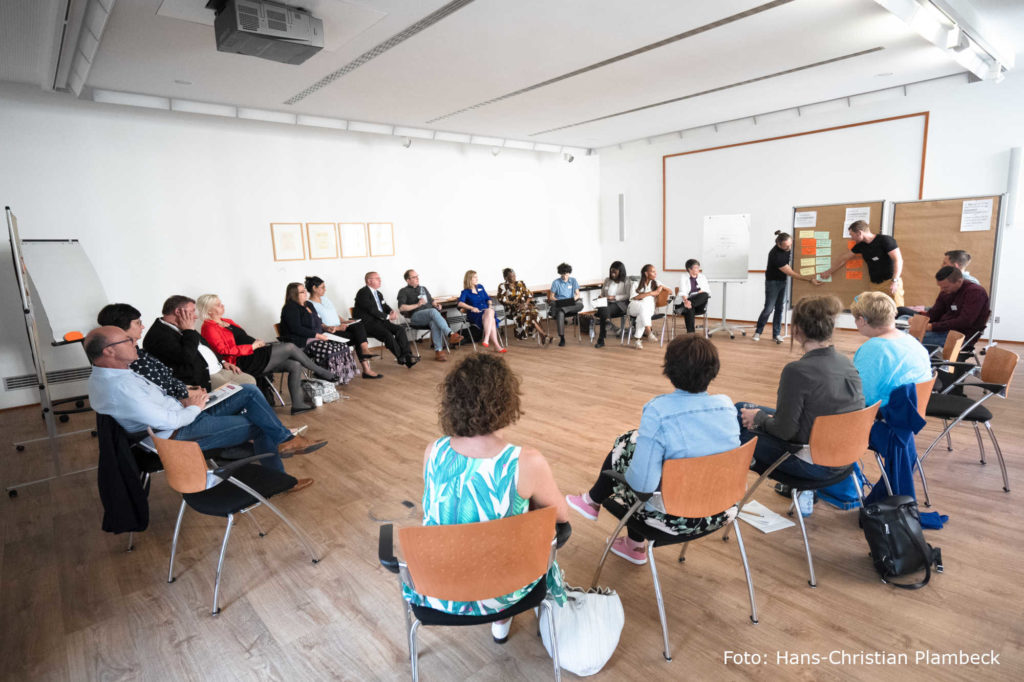
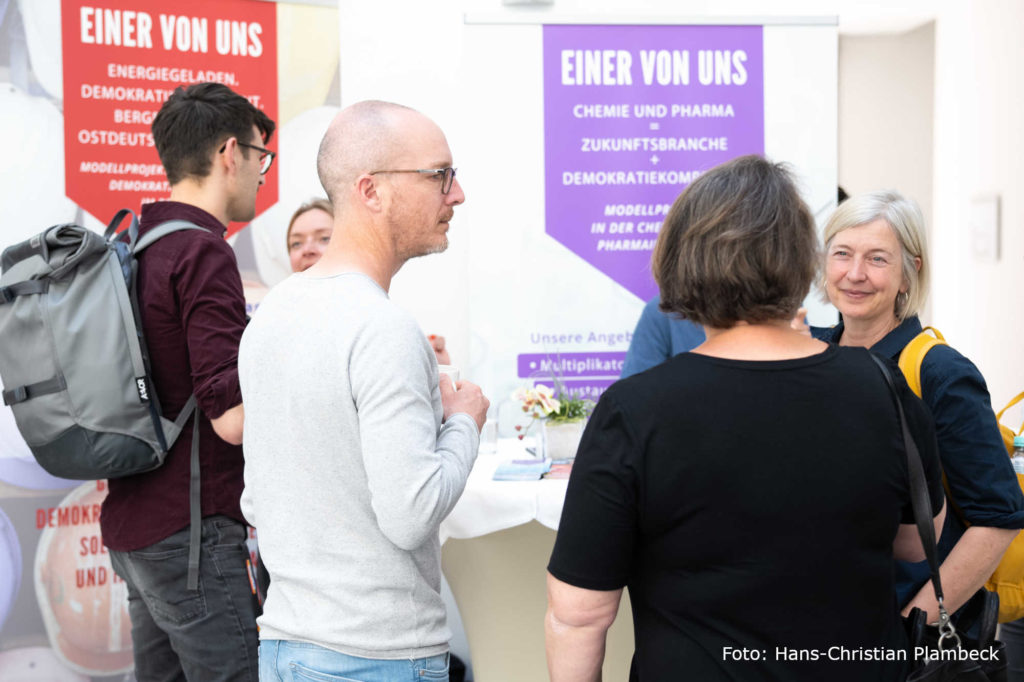
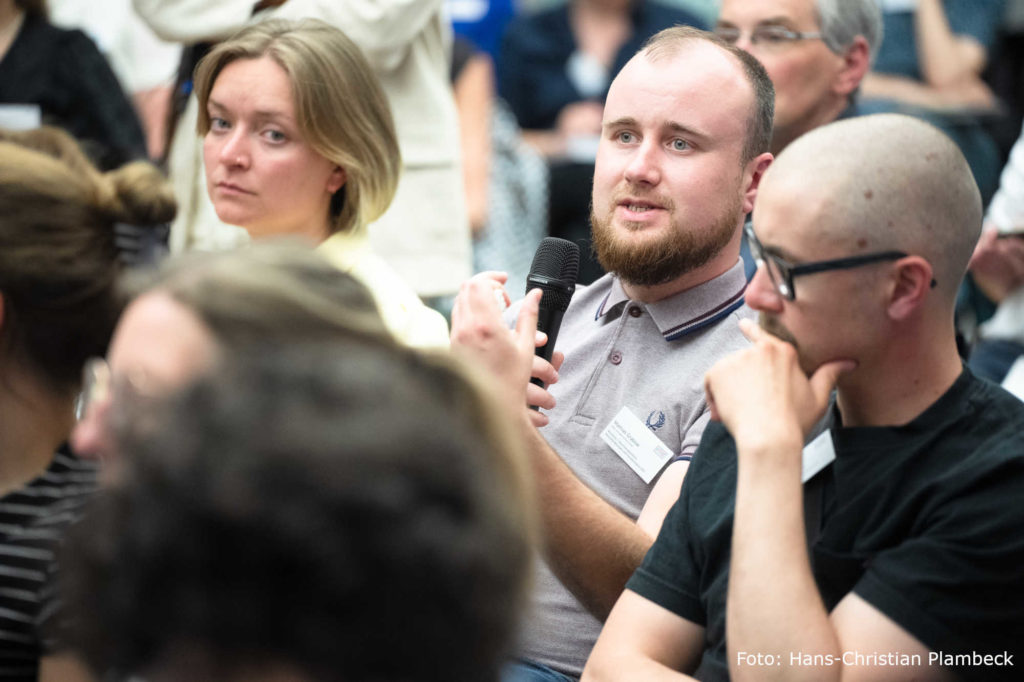
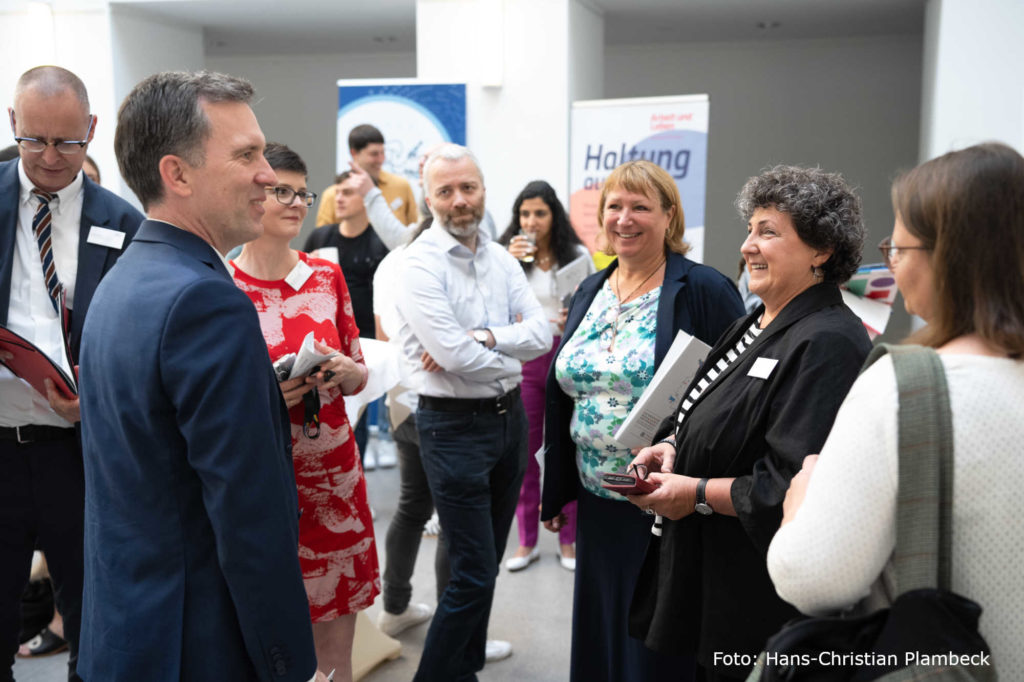
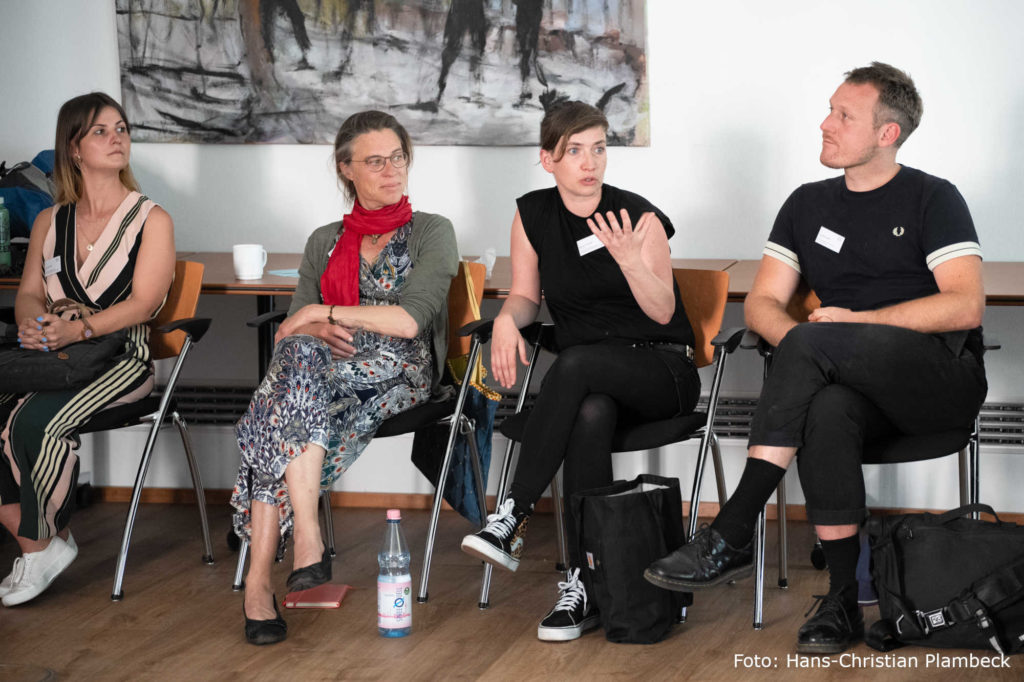
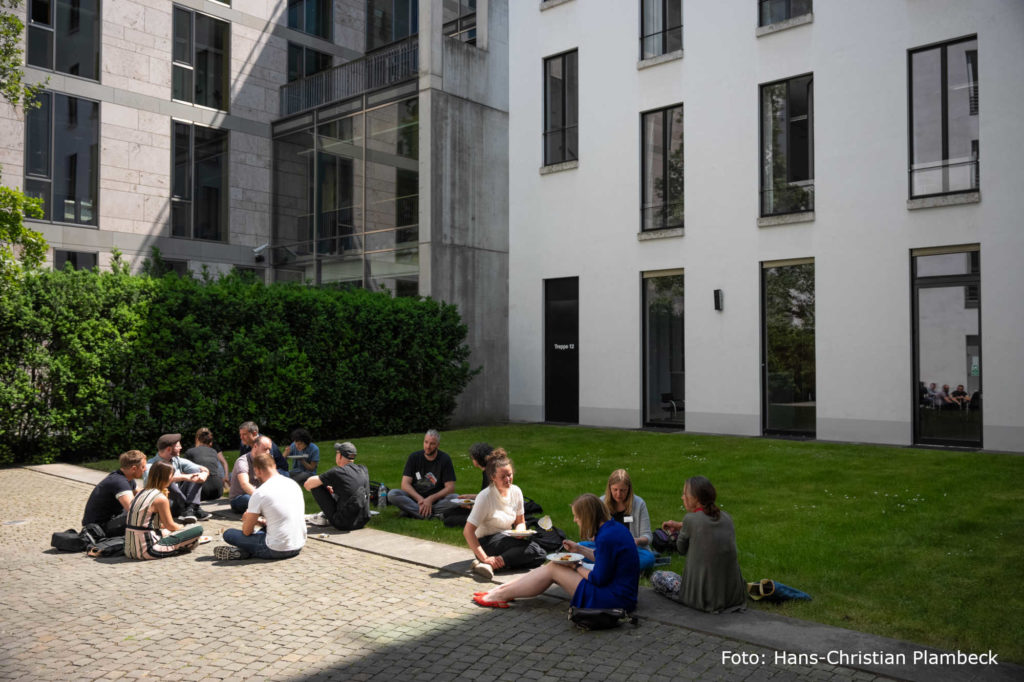
We would like to thank all speakers, participants and workshop moderators for their inspiring contributions and discussions! Special thanks are due to the colleagues working in the support program, who shared their experiences, insights and challenges from their practical work with companies and vocational schools openly and with commitment with the conference guests present.
We will take the numerous suggestions and thought-provoking impulses from the exchange with so many smart people from educational work, science, companies, trade unions and politics with us as an initiative for the work in the second half of the program.
Annex – Program of the symposium